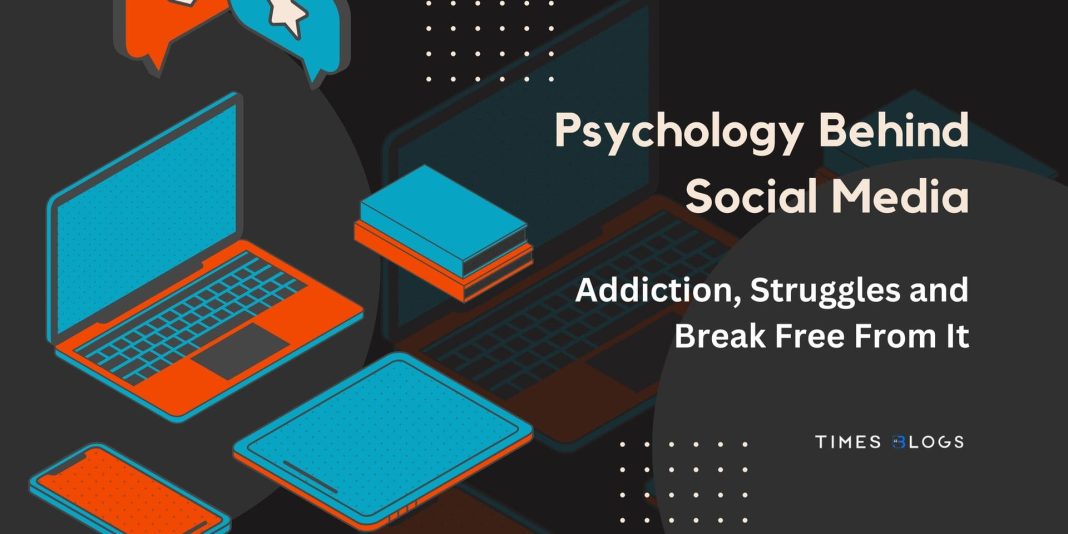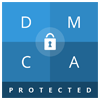Social media platforms have become a ubiquitous part of our lives. They provide us with easy access to information, entertainment, and social connections. However, for many people, social media use can turn into an addiction. The constant need to check notifications, scroll through feeds, and interact with other users can consume our time and attention, leading to negative consequences such as decreased productivity, anxiety, and depression. In this blog, we will explore the psychology behind social media addiction and provide practical tips on how to break free from it.
Table of Contents
What is Social Media Addiction?
Social media addiction is a behavioral addiction that is characterized by an excessive and compulsive use of social media platforms. It is also known as problematic social media use or social media dependence. Like other behavioral addictions, social media addiction is driven by the release of dopamine in the brain, which is associated with pleasure and reward.
People who are addicted to social media may spend hours each day scrolling through their feeds, checking notifications, and interacting with others. They may feel a strong urge to use social media, even when they know it is interfering with their work, relationships, or other responsibilities. They may also experience withdrawal symptoms, such as anxiety, irritability, or depression, when they are unable to access social media.
Social media addiction can have a negative impact on mental health and well-being. Studies have shown that excessive social media use is associated with increased levels of anxiety, depression, and loneliness. It can also lead to decreased productivity, poor sleep, and other negative outcomes.
Social media addiction is a relatively new phenomenon, and researchers are still exploring its causes and effects. Some factors that may contribute to social media addiction include the constant need for validation and connection, the fear of missing out (FOMO), and the social comparison trap. These factors can create a cycle of addiction, where users are constantly seeking out more social media use in order to satisfy their craving for validation or avoid negative feelings.
The Struggles of Social Media Addiction
Social media addiction can lead to a range of struggles that can impact an individual’s mental health, relationships, and overall well-being. Here are some of the struggles of social media addiction in detail:
- Decreased productivity: People who are addicted to social media often spend hours scrolling through their feeds or checking notifications, which can interfere with their work, school, or other responsibilities. This can lead to decreased productivity and poor performance.
- Disrupted sleep patterns: The blue light emitted by screens can disrupt the body’s natural sleep patterns, making it difficult to fall asleep or stay asleep. People who use social media before bed may experience poor sleep quality, which can lead to fatigue, irritability, and other negative outcomes.
- Increased anxiety and stress: Social media can be a source of stress and anxiety, as users are constantly comparing themselves to others and seeking validation from their online networks. This can lead to feelings of inadequacy, self-doubt, and insecurity.
- Isolation and loneliness: While social media platforms can provide a sense of connection and community, excessive use can actually lead to feelings of isolation and loneliness. People who are addicted to social media may spend more time interacting with their screens than with real-life friends and family members.
- Poor self-esteem: Social media addiction can contribute to poor self-esteem, as users may feel pressure to present a curated and idealized version of themselves online. This can lead to feelings of inadequacy and low self-worth.
- Relationship problems: Social media addiction can also lead to problems in relationships, as users may prioritize their screens over real-life interactions with their partners, family members, or friends. This can lead to feelings of neglect, resentment, and conflict.
- Financial problems: Some social media platforms require users to pay for premium features or in-app purchases, which can lead to financial problems for people who are addicted to social media. They may also spend money on devices or data plans in order to access social media more frequently.
- Reduced attention span: People who are addicted to social media may have reduced attention spans, as they are used to scrolling quickly through feeds and consuming information in bite-sized pieces. This can lead to difficulty focusing on tasks that require sustained attention and concentration.
- Physical health problems: Excessive use of social media can also lead to physical health problems, such as eye strain, headaches, neck pain, and back pain. It can also contribute to a sedentary lifestyle, which can increase the risk of obesity, heart disease, and other health problems.
The Psychology Behind Social Media Addiction
1.1. The Reward System
Social media platforms are designed to keep us engaged and addicted. They do this by using a reward system that triggers the release of dopamine, a neurotransmitter that is associated with pleasure and motivation. Every time we get a notification, like, or comment, our brain releases dopamine, making us feel good and reinforcing our behavior.
This reward system is similar to what happens when we eat delicious food, have sex, or use drugs. Our brain learns to associate the pleasurable experience with the behavior that caused it, and we start craving more of it. In the case of social media, this craving can lead to excessive use and addiction.
1.2. The Fear of Missing Out (FOMO)
Another psychological factor that contributes to social media addiction is the Fear of Missing Out (FOMO). FOMO is the anxiety we feel when we believe that others are having fun or experiencing something exciting, and we are not. Social media feeds into this anxiety by constantly showing us what others are doing, where they are, and who they are with. This can create a sense of urgency to check our feeds and stay connected, even when we should be focusing on other things.
1.3. The Social Comparison Trap
Social media also promotes social comparison, which can be another source of anxiety and addiction. When we see other people’s curated highlight reels, it can be easy to feel inadequate, jealous, or envious. We might start comparing ourselves to others and feeling like we are not good enough, leading to a cycle of negative self-talk and low self-esteem. This can lead to a need to constantly seek validation and approval from others, further perpetuating the addiction.
How to Break Free from Social Media Addiction
2.1. Recognize the Problem
The first step in breaking free from social media addiction is to recognize that you have a problem. Ask yourself the following questions:
- Do I spend more time on social media than I intended?
- Do I feel anxious or depressed when I can’t access social media?
- Do I check my social media accounts first thing in the morning or last thing at night?
- Do I use social media as a way to avoid other responsibilities or tasks?
- Do I feel like my social media use is negatively impacting my relationships or work?
If you answered yes to any of these questions, you may be addicted to social media. Acknowledging the problem is the first step in overcoming it.
2.2. Set Boundaries
Once you have recognized the problem, the next step is to set boundaries for your social media use. This can include limiting the amount of time you spend on social media, turning off notifications, or only using social media during designated times of the day. You can also consider taking a break from social media altogether for a set period, such as a week or a month.
2.3. Replace Social Media with Healthy Habits
Breaking a habit is easier when you have a replacement behavior. Instead of spending hours on social media, try replacing that time with healthy habits such as exercising, reading, or spending time with loved ones. Not only will these activities improve your overall well-being, but they will also help you break the cycle of addiction and retrain your brain to seek out other sources of pleasure and reward.
2.4. Practice Mindfulness
Mindfulness can also be a helpful tool in breaking free from social media addiction. Mindfulness involves being present in the moment, without judgment or distraction. By practicing mindfulness, you can become more aware of your thoughts, emotions, and behaviors, and learn to manage them more effectively.
One way to practice mindfulness is to take a few deep breaths and focus on your senses. Notice what you can see, hear, smell, and feel in your environment. This can help you become more present and less distracted by social media and other external stimuli.
2.5. Seek Professional Help
If you are struggling to break free from social media addiction on your own, it may be helpful to seek professional help. A therapist or counselor can help you explore the underlying psychological factors contributing to your addiction and provide you with tools and strategies to overcome it. They may also be able to recommend support groups or other resources to help you on your journey.
Conclusion
Social media addiction is a real and growing problem that can have serious consequences for an individual’s mental health, relationships, and overall well-being. While social media platforms can provide a sense of connection and community, excessive use can lead to isolation, anxiety, poor self-esteem, and other negative outcomes.
Breaking free from social media addiction requires awareness, intention, and effort. Individuals who are struggling with social media addiction can take steps such as setting boundaries, seeking professional help, and practicing healthy habits to regain control of their lives.
It is also important for society as a whole to recognize the dangers of social media addiction and take steps to promote healthy and responsible use of these platforms. This may include educating young people about the risks of social media addiction, advocating for regulatory measures to protect users’ privacy and well-being, and promoting digital literacy and media literacy skills to help users navigate the complex landscape of social media.
Overall, social media can be a valuable tool for communication, connection, and self-expression, but it is important to use it in moderation and with awareness of the potential risks and consequences of addiction. By taking steps to break free from social media addiction and promote responsible use of these platforms, we can harness the power of social media for positive change and improve our mental health and well-being in the process.




